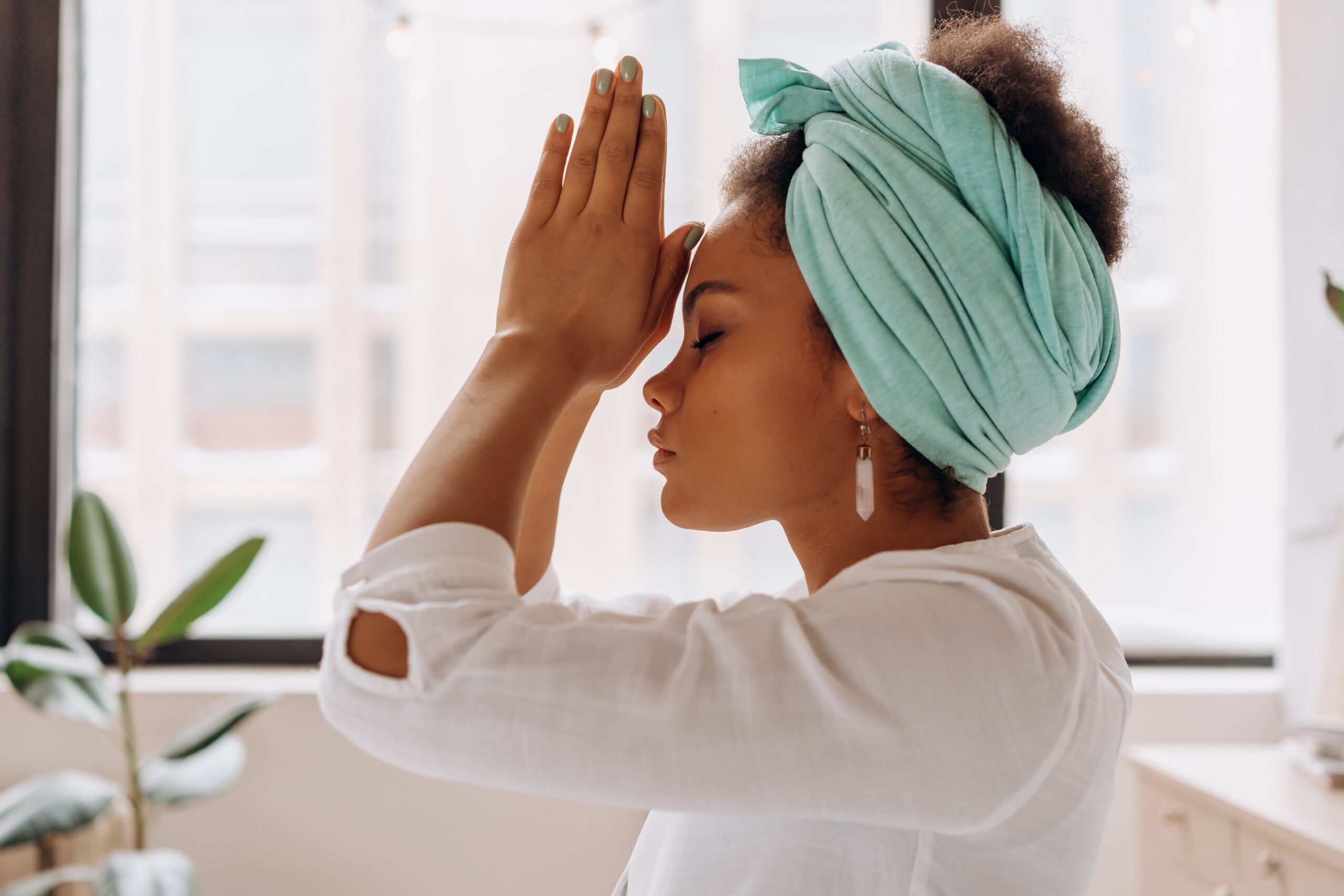
How to Follow your Intuition
Following our Inner Knowing
How much do you look to others for approval, validation o to determine who you are? Do you trust yourself and the decisions you make? Keep reading to find out how to trust your inner vision and follow your intuition.
The third eye chakra, also known as Ajna in Sanskrit, is the sixth primary energy centre in the human body, located between the eyebrows. It is associated with intuition, insight, perception, imagination, and the ability to see beyond the physical realm. The symbol for the third eye chakra is often depicted as a lotus flower with two petals, representing the dual aspects of spiritual insight and perception.
The All Seeing Eye
The third eye chakra is a vital energy centre associated with intuition and higher consciousness. Following your intuition, guided by a balanced and activated third eye chakra, can lead to a more authentic and fulfilling life, as it helps you align with your true self and make decisions that resonate with your inner wisdom.
This chakra is the seat of higher consciousness and inner wisdom. It is often associated with the pineal gland, a small endocrine gland in the brain that produces melatonin, regulating sleep patterns. The third eye chakra is thought to connect individuals with their inner selves, allowing them to tap into their intuition and spiritual guidance.
One of the key aspects of the third eye chakra is the development of intuition. Intuition is often described as the ability to understand or know something instinctively, without the need for conscious reasoning. It is a deep and subtle form of knowledge that goes beyond logic and analytical thinking. By activating and balancing the third eye chakra, individuals may experience heightened intuition and a greater sense of inner knowing.
Following your intuition is crucial for personal growth and navigating life’s challenges. It serves as a guide, helping us to make decisions that align with our true selves and life purpose. When the third eye chakra is open and balanced, it can enhance clarity of thought, increase self-awareness, and promote a deeper understanding of the world.
‘The Intellect has little to do on the road to discovery. There comes a leap in consciousness, call it intuition or what you will, and the solution comes to you’ Albert Einstein.
Here are some ways to activate and balance the third eye chakra to enhance intuition:
- Meditation: Regular meditation practices, especially those focused on the third eye, can help activate and balance the energy of this chakra.
- Visualisation: Imagining a bright, indigo light at the location of the third eye during meditation can stimulate and cleanse the energy of the chakra.
- Mindfulness: Being present and fully engaged in the current moment can help individuals become more attuned to their intuition.
- Trusting your instincts: Pay attention to your gut feelings and inner nudges. Trusting and acting upon these intuitive insights can strengthen the connection with the third eye chakra.
- Exploring spiritual practices: Engaging in practices such as yoga, energy healing, or connecting with nature can support the development of the third eye chakra.
How often do you ignore your intuition?
Do you tend to ignore that first impulsive feeling deep within and let your mind and logic talk you around?
If you’re anything like me, it’s often. I suppose another way to look at it is whether to follow your head or your heart, to think or to feel.
Even when I do connect to my inner wisdom and intuition, I can still confuse this with fear, although the two don’t have to be mutually exclusive. Sometimes, fear can mask intuitive guidance.
Both feelings can elicit strong reactions. However, I have learnt that there are some key characteristics that may help differentiate between the two:
Body Sensations
Intuition: Often associated with a sense of calm or ease. You may experience a feeling of lightness, warmth, or comfort.
Fear: Tends to manifest physically with sensations of tension, tightness, unease, or a “knot” in the stomach.
Clarity vs. Confusion
Intuition: Generally provides a clear and straightforward sense of knowing or understanding without the need for extensive analysis.
Fear: Can lead to confusion, doubt, and a sense of being overwhelmed. It may cloud your judgment and create uncertainty.
Future Focus
Intuition: Often relates to a deeper understanding of the present moment and a subtle awareness of potential outcomes.
Fear: Tends to project into the future, generating worst-case scenarios and irrational concerns.
Emotional Tone
Intuition: Usually feels neutral or positive, offering guidance that aligns with your authentic self and values.
Fear: Often carries a negative emotional tone, causing distress, anxiety, or a sense of impending danger.
Source of Feeling
Intuition: Originates from a place of inner wisdom and a deeper connection to oneself.
Fear: May stem from past traumas, conditioned responses, or external influences.
Impulsive vs. Considered Action
Intuition: Encourages thoughtful, considered actions that align with your true self and values.
Fear: May lead to impulsive reactions driven by a desire to escape or avoid perceived threats.
Immediate vs. Lingering
Intuition: Often provides a sense of immediate clarity or understanding.
Fear: Can linger, creating a prolonged state of anxiety or unease.
These are of course generalisations, and tendencies I’ve noticed within myself.
Developing self-awareness through practices such as yoga, mindfulness, meditation, and reflective journaling can help you better understand and trust your feelings.
Why do we Ignore our Intuition?
My friend and I have a joke about needing a ‘signier’ sign from the universe even when we intuitively know what it right for us. We waste time going this way, or that and end up where we would have been had we simply listened in the first place.
There are psychological, social, and cultural factors of why we might override our intuition.
Rationalisation and Logic
In a society that often values rational thinking and logic, individuals may dismiss intuitive feelings as irrational or illogical. There can be a tendency to prioritise evidence-based reasoning over gut feelings.
Social Conditioning
Cultural and societal norms can influence behaviour. If intuition contradicts societal expectations or norms, individuals may suppress or ignore their intuitive insights to conform to social standards.
Fear of Judgment
Fear of being judged or ridiculed can lead individuals to second-guess their intuitive feelings. There might be a reluctance to trust one’s instincts if they fear others won’t understand or support their decisions.
Past Trauma
Previous negative experiences or trauma can create a heightened sense of fear or anxiety. In such cases, individuals may avoid following their intuition to prevent reliving past painful experiences.
External Validation
Some individuals heavily rely on external validation and approval. If intuitive feelings are not externally supported or validated, there might be a tendency to dismiss them.
Overthinking and Analysis Paralysis
Constant overthinking and the desire for exhaustive analysis can lead to paralysis by analysis. This analytical approach might overshadow intuitive feelings, causing individuals to ignore their gut instincts.
Cultural or Religious Beliefs
Cultural or religious teachings may discourage trust in personal intuition, emphasising external authority or prescribed rules instead.
Low Self-Esteem
Individuals with low self-esteem may doubt their own judgment and intuition. They might prioritise others’ opinions over their internal guidance.
Desire for Comfort or Security
Following intuition sometimes involves stepping into the unknown, stepping out of our comfort zone, taking risks, or making unconventional choices. The desire for comfort and security can lead individuals to resist intuitive nudges that challenge the status quo.
Lack of Mindfulness
Being out of touch with our own feelings or emotions can result in missing subtle intuitive signals. Lack of mindfulness and self-awareness can contribute to ignoring intuitive insights.
By tuning into our intuitive signals, we tap into a wellspring of wisdom that transcends mere logic and reason. Intuition allows us to perceive subtle nuances, make choices that resonate with our deepest values, and navigate the ebbs and flows of life with a sense of purpose. It is a silent yet powerful force that connects us with our innermost desires, providing insights that can lead to personal fulfilment and meaningful connections.
In a world often dominated by External expectations, societal norms, and the constant chatter of the mind, listening to our intuition becomes an act of self-empowerment. It is a declaration of trust in our own capabilities and an acknowledgment of the unique path we are meant to tread. Intuition is a beacon that lights the way through uncertainty, offering glimpses of insight even when the path ahead seems shrouded in darkness.
Affirmations to connect to your Third Eye Chakra
- My third eye is open and receptive to divine wisdom and intuition.”
- “I trust my inner vision and intuition to guide me on my spiritual journey.”
- “I am deeply connected to my intuition and inner knowing.”
- “I see beyond the surface and perceive the deeper truths of life.”
- “My third eye is a source of clarity, insight, and understanding.”
- “I am attuned to the subtle energies of the universe.”
- “I am in tune with the wisdom of my higher self.”
- “I honour and respect my intuition, allowing it to lead me in the right direction.”
- “I am open to receiving messages and guidance from the universe.”
- “My third eye is a gateway to higher consciousness and spiritual awakening.”
Ultimately, following our intuition is a profound act of self-love and self-awareness. It allows us to honour the whispers of our inner wisdom, embrace authenticity, and follow our unique path.
The more we learn to trust the subtle nudges, feelings, and inklings that arise from within, the more we embark on a transformative journey that leads us towards a more fulfilling, purposeful, and harmonious existence.
If you’d like more information on yoga philosophy please contact me or book here to practise with me in Marlow, Twickenham and online.
With love
Anney xx




